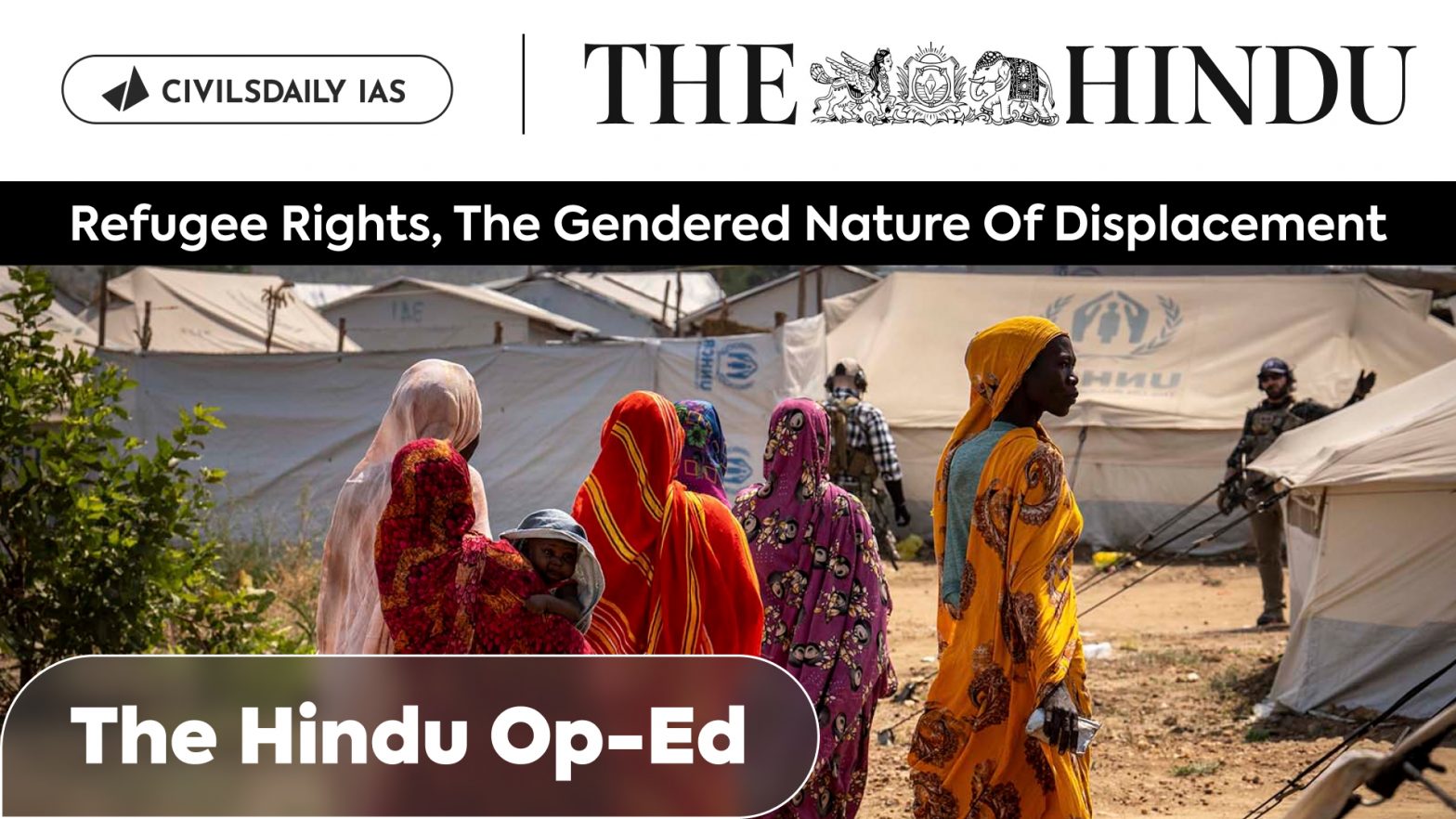| PYQ Relevance: Mains: Q1 “Refugees should not be turned back to the country where they would face persecution or human right violation”. Examine the statement with reference to ethical dimension being violated by the nation claiming to be democratic with open society. (UPSC IAS/2021) Q2 Cross-border movement of insurgents is only one of the several security challenges facing the policing of the border in North-East India. Examine the various challenges currently emanating across the India-Myanmar border. Also, discuss the steps to counter the challenges. (UPSC IAS/2019) |
Note4Students:
Mains: Conventions and Rights;
Mentor comments: By the end of June 2023, 110 million people worldwide were forcibly displaced due to persecution, conflict, violence, and severe disruptions to public order. This included 36.4 million refugees (30.5 million under UNHCR and 5.94 million Palestine refugees under UNRWA), 62.1 million internally displaced persons, 6.08 million asylum seekers, and 5.6 million Venezuelans needing protection. Additionally, millions of stateless individuals lack nationality and basic rights. In the first half of 2023, 90% of new displacements arose from major crises in Afghanistan, the DRC, Latin America, Myanmar, Somalia, Sudan, and Ukraine.
Let’s learn!
__
Why in the News?
Armed conflict, violence, human rights abuses, and persecution force millions globally to escape their homes and homelands, resulting in their status as ‘displaced people’.
Challenges Faced by Female Refugee
- India as a Refugee-Receiving Nation: India has hosted over 200,000 diverse refugee groups since independence. As of January 31, 2022, 46,000 refugees and asylum-seekers were registered with UNHCR India, with 46% being women and girls.
- Gendered Responsibilities: Women and girls in refugee populations are disproportionately burdened with caregiving responsibilities for children, the elderly, and family sustenance. They are often the last to flee conflict zones, carrying the additional responsibility of managing family survival.
- Impact on Physical and Mental Health: The gendered nature of displacement severely impacts the physical and mental well-being of refugee women. They face numerous stressors, including the loss of partners and children, hardships of camp life, altered family dynamics, and reduced safety.
- Increased Risk of Gender-Based Abuse: Refugee women are exposed to heightened risks of gender-based violence, including transactional sex, due to prolonged conflict, disrupted social support systems, and socio-economic challenges.
- Psychological and Psychosocial Conditions: Displaced women are particularly susceptible to psychological disorders such as PTSD, anxiety, and depression. They are twice as likely to experience PTSD and four times more likely to suffer from depression compared to male counterparts. For example, a study in Darfur, Sudan, found 72% of displaced women affected by PTSD and distress.
Conventions and Rights
- UNCRPD Recognition:
- The UN Convention on the Rights of Persons with Disabilities (UNCRPD) recognizes ‘psychosocial disability’ as long-term mental or intellectual impairments that hinder full participation in society.
- Article 6 of the UNCRPD mandates protection against multiple discrimination faced by women and girls with disabilities and ensures their full enjoyment of human rights.
- India’s Ratification and Legislation:
- India ratified the UNCRPD and enacted the Rights of Persons with Disabilities Act, 2016 (RPWDA).
- While the term ‘psychosocial disability’ is not explicitly used in Indian law, “mental illness” is recognized and covered under the RPWDA.
- The RPWDA guarantees various rights to persons with disabilities, including the right to health care (Section 25) and equal rights for women with disabilities (Section 4).
- Absence of Legal Framework: India is not a signatory to the 1951 Refugee Convention and its 1967 Protocol. There is no specific domestic legislation addressing refugees, particularly those with disabilities.
- Right to Life and Health: The Supreme Court of India has upheld the right to life under Article 21, which includes the right to health, for refugees.
Way forward:
- Enact Comprehensive Legislation: Need to introduce a uniform legal framework that specifically addresses the rights and protections of refugees, with provisions for those with disabilities, aligning with international commitments like the 2030 Agenda.
- Inclusive Policy Implementation: The government should integrate refugees with disabilities into existing and new national policies and programs, ensuring accessible services and participation in decision-making processes.

